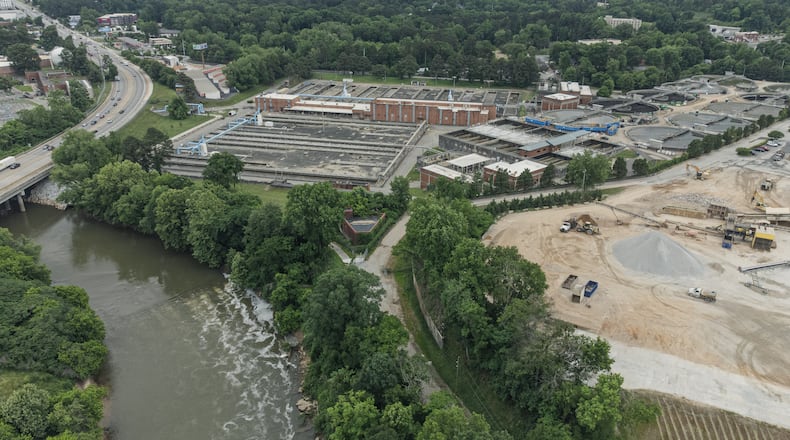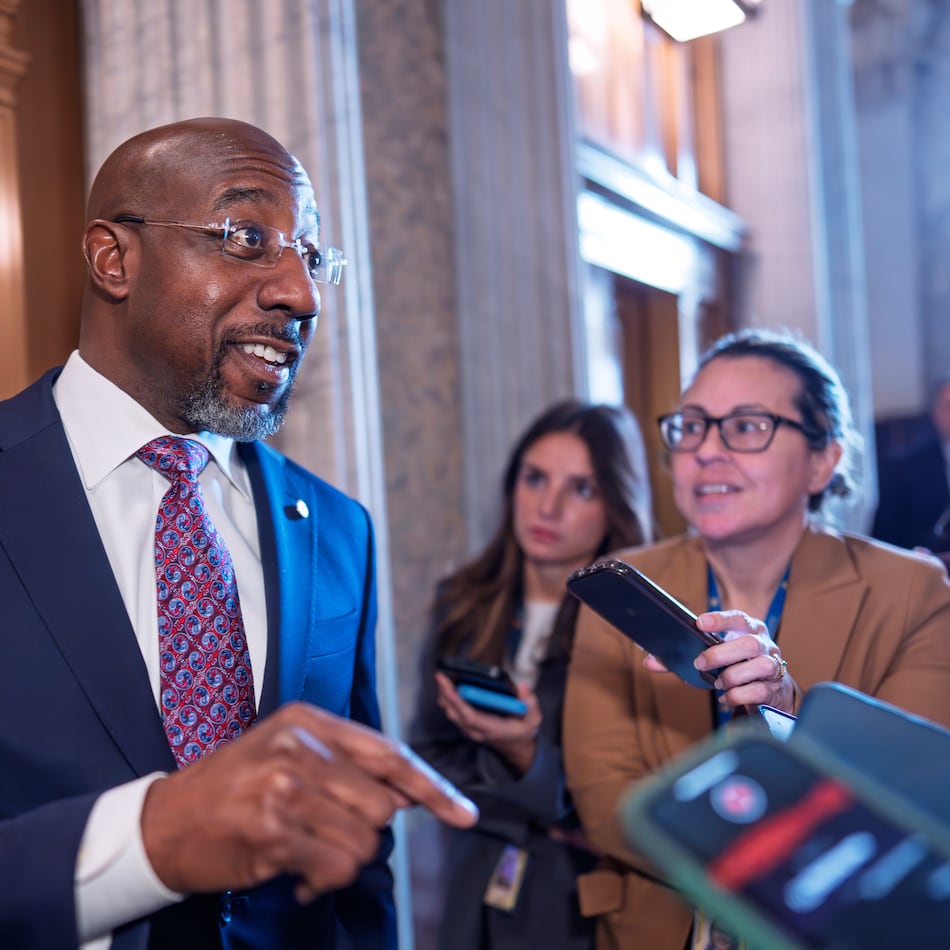The city of Atlanta was fined $163,000 for clean water violations at all three of the city’s wastewater treatment facilities less than two weeks before the city was crippled by a series of drinking water failures that remained unresolved Monday.
The fine, dated May 21 and made public last week, underscores the scope of challenges facing the beleaguered agency now that it is contending with failed water mains on top of crumbling sewage infrastructure.
The fine was issued by the Georgia Environmental Protection Division (EPD) for 106 spills of raw sewage — eight of which exceeded 10,000 gallons — into waters of the state over the previous two years. But the fine does not include dozens more violations issued this year for the city’s largest wastewater plant, R.M. Clayton, near Atlanta Road on the city’s northwest side.
Jess Sterling of the Chattahoochee Riverkeeper said her organization has been sampling the plant’s outfall two to three times a week since March, when they first detected a major spill in E. coli levels downstream and tracked it to the plant. The facility is permitted to release up to 100 million gallons of treated wastewater a day into the river.
Although the bacteria levels have mostly dropped except for occasional spikes, Sterling said their tests still show high levels of phosphorous and nitrogen, which can devastate the ecology and wildlife of the river.
“The water and sewer systems, while they’re not physically linked, they’re linked institutionally,” Sterling said. “Both the water and the sewer disasters are symptoms of systemwide problems and a lack of upgrades to our infrastructure.”
Representatives for the city of Atlanta’s watershed department and Mayor Andre Dickens did not respond to requests for comment.
The city was required to file a plan to fix the problems at R.M. Clayton that estimated the work could take until the end of the year to complete. The plan did not include a projected budget. The department has more than 1 million customers and 1,350 employees and a budget of $699.9 million, according to a budget presentation that was recorded and posted last month to the city’s YouTube channel.
Pam Burnett, executive director of the Georgia Association of Water Professionals, said the drinking water problems should not affect the wastewater system as long as they remain short-term.
She said as unfortunate as the multiple water crises are, there is also an unprecedented amount of federal funding for water infrastructure that has flowed and is flowing to states through a number of federal laws for pandemic relief, infrastructure and climate.
“This is the biggest shot in the arm we’ve had and we’ve been asking for it for a long, long time,” she said.
A note of disclosure
This coverage is supported by a partnership with Green South Foundation and Journalism Funding Partners. You can learn more and support our climate reporting by donating at ajc.com/donate/climate/
About the Author
Keep Reading
The Latest
Featured



